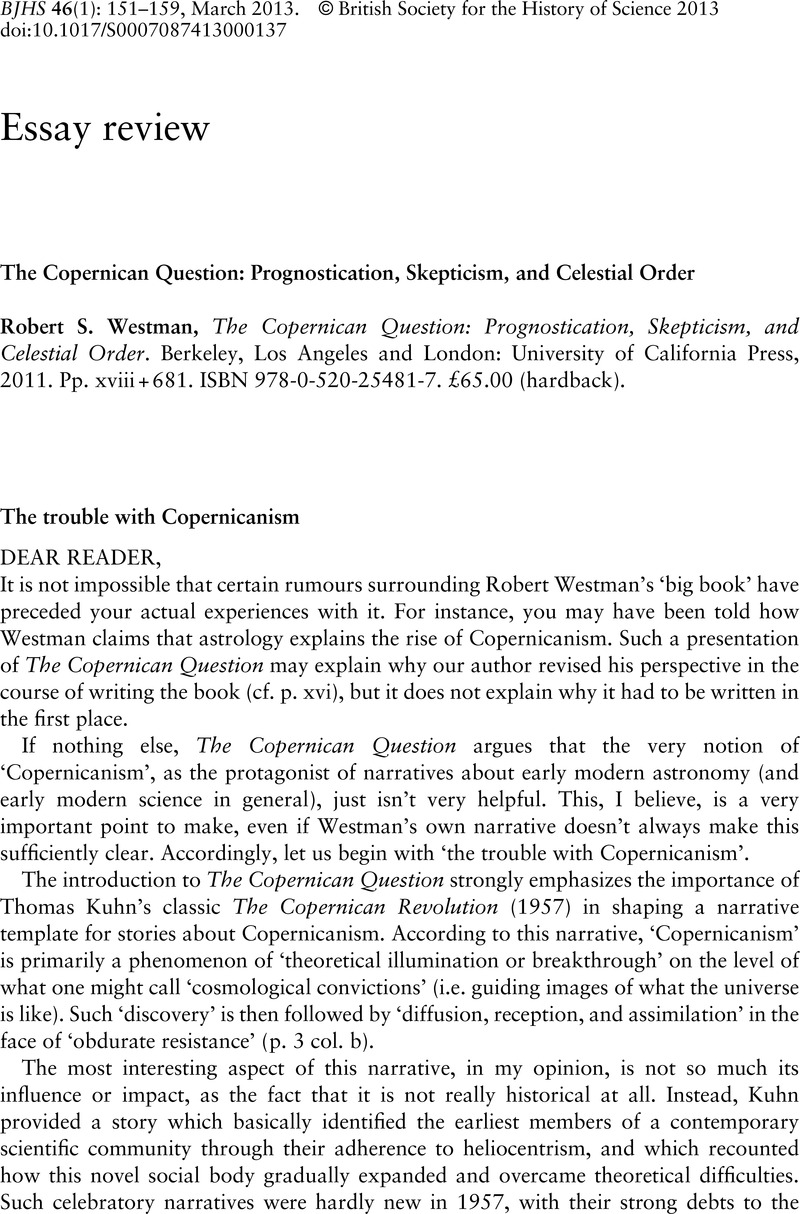No CrossRef data available.
Article contents
The Copernican Question: Prognostication, Skepticism, and Celestial Order
Published online by Cambridge University Press: 21 March 2013
Abstract

- Type
- Essay Review
- Information
- Copyright
- Copyright © British Society for the History of Science 2013
References
1 Kuhn, Thomas S., The Copernican Revolution: Planetary Astronomy in the Development of Western Thought, Cambridge, MA: Harvard University Press, 1957, pp. 206–207Google Scholar, 209.
2 Henry, John, The Scientific Revolution and the Origins of Modern Science, 2nd edn, Basingstoke: Palgrave, 2002, p. 17Google Scholar.
3 Henry, op. cit. (2), pp. 19–20.
4 Vermij, Rienk, The Calvinist Copernicans, Amsterdam: Edita KNAW, 2002, p. 375Google Scholar.
5 As early as 1994, Westman used the precise phrase ‘Copernican question’ in referring to the present book. In 1986, however, his contribution to an edited volume still announced a forthcoming work called The Copernicans: Universities, Courts, and the Disciplines, 1543–1700. See Lindberg, David C. and Numbers, Ronald L., eds., God and Nature: Historical Essays on the Encounter between Christianity and Science, Berkeley and Los Angeles: University of California Press, 1986, p. 488Google Scholar.
6 Cf. p. 19 col. b: ‘What distinguished the period 1572–1604 was that the initial challenge [to the traditional distinction between incorruptible celestial heavens and a changeable terrestrial realm] originated from a nontextual, nonhuman source: natural events in the “out there” – believed by contemporaries to be divinely caused – actually impinged on the perceptual apparatus of those who claimed to have observed something new’.
7 Steven Vanden Broecke, ‘The stars, the sublunary world, and the social body: on the specific rationality of early Renaissance prognostications’, in Charles Burnett and Dorian Greenbaum, eds., From Mash'allah to Kepler, forthcoming.


